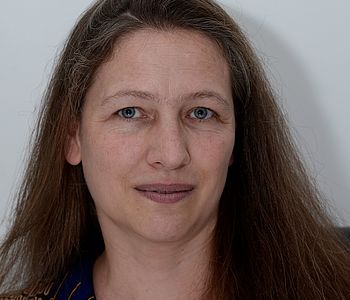Dr. Susann Baller | Researcher

Home Institution
:
Deutsches Historisches Institut Paris/ Centre Marc Bloch
|
Position
:
Researcher
|
Disciplines
:
History
,
Afrikawissenschaften
,
Contemporary History
|
Biography
Susann Baller has been a researcher at the Centre Marc Bloch since January 2024. This position is based on a cooperation with the German Historical Institute Paris and funded by the Max Weber Foundation. Previously, Susann Baller worked for the German Historical Institute Paris (DHIP), from 2021-2023 as Director of the Merian Institute for Advanced Studies in Africa (MIASA), which is based at the University of Ghana (UG) in Accra (Legon), funded by the Federal Ministry of Education and Research (BMBF) and UG, and from 2017-2020 as Head of the Transnational Research Group "The Bureaucratisation of African Societies", which was based in Dakar in cooperation with the Centre de recherches sur les politiques sociales (CREPOS). Prior to this, Susann Baller was a researcher and lecturer at the Humboldt University in Berlin and at the University of Basel as well as a fellow of the Swiss National Science Foundation at the Institut des mondes africaines (IMAF) in Paris and at the University of Michigan as well as a fellow at the Bayreuth Academy of Advanced African Studies.
Her disciplinary focus is on African history. Her dissertation, completed at the Humboldt University in Berlin, was published under the title "Spielfelder der Stadt: Fußball und Jugendpolitik seit 1950" (2010). Her habilitation project deals with the topic "Travelling politicians: Power and its representation in West Africa during decolonisation, 1945-62'. In addition to the fields of urban, sports and youth history and the phase of decolonisation, she has also worked in recent years on the topics of bureaucratisation, knowledge production and scientific cooperation as well as the restitution of cultural objects from Africa.
The habilitation project analyses state visits and other official political travels undertaken by African and French politicians during the phase of decolonisation in the period after the Second World War until the early 1960s within West Africa and between West Africa and Europe. The regional focus focuses in particular on the territory of the Afrique occidentale française (AOF), but also considers parts of the Communauté française created in 1958 and the federations of the Ghana-Guinea Union, the Fédération du Mali and Senegambia, which were partly realised and partly only planned. The work explores political transformation processes from the perspective of the cultural and social practice of travelling. The research project examines the role of travelling in the production of political orders and imperial, national and pan-African visions.
The travels not only served diplomatic negotiations and the expansion and development of economic relations, but also provided a stage for symbolic representation. For French politicians, this stage provided an opportunity to celebrate France's continuing colonial influence. For West African politicians, the trips were an opportunity to showcase their respective states on the international stage and to promote pan-African ideals, especially from 1958 with more autonomy and 1960 with state independence. At the same time, the journeys of African politicians from the Communauté show that travelling in a Francophone context represented familiar territory for them, while their trips to Anglophone Africa or the countries of the Eastern Bloc were often characterised by misunderstandings.
Based on newspaper reports and archive sources, particularly from Senegal, France and Great Britain, the research project looks at the travel routes, diplomatic protocol and the on-site visit programme. It examines travel planning as well as media coverage and individual reports on the trips. The increasing number of trips and new destinations as well as the duration of trips and stays (but also absence from their home country) are analysed. Particular attention is paid to the re-negotiation of diplomatic ceremonial, especially when African politicians were travelling at a time of rapid political change. Also of special interest are all those moments that were beyond the control of the travel planning (from delays and misunderstandings to protests).